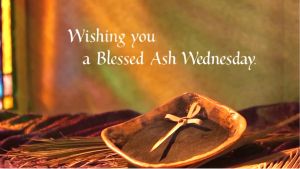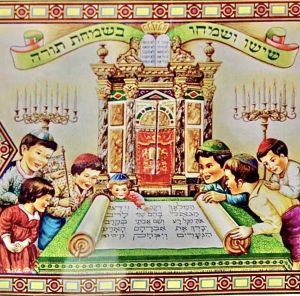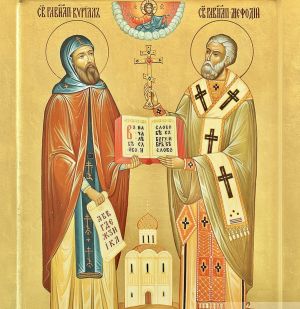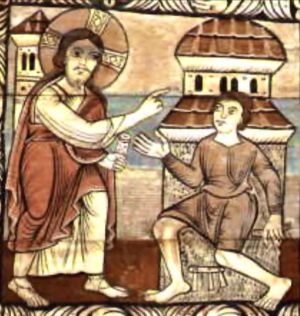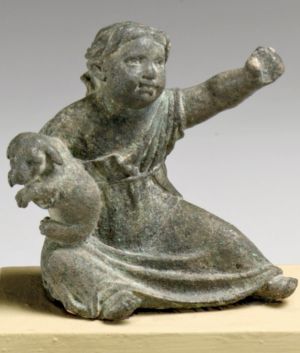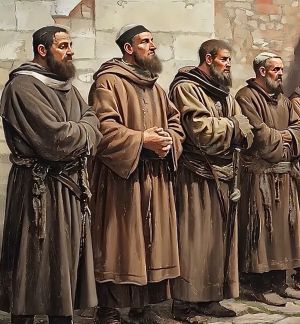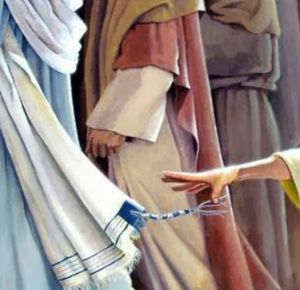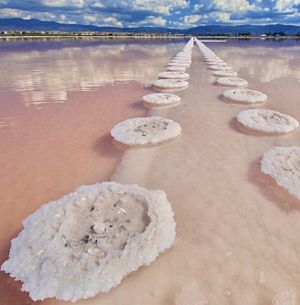
Teresa Girolami
Teresa Girolami è laureata in Materie letterarie e Teologia. Ha pubblicato vari testi, fra cui: "Pellegrinaggio del cuore" (Ed. Piemme); "I Fiammiferi di Maria - La Madre di Dio in prosa e poesia"; "Tenerezza Scalza - Natura di donna"; co-autrice di "Dialogo e Solstizio".
This Sunday's long passage, taken from the Gospel of Matthew, addresses various themes.
Among these is the urgency of overcoming the legalism of the scribes and Pharisees by carefully doing God's will.
Almost without realising it, Francis was a great spiritual teacher.
By grace, he was convinced that justice always goes hand in hand with mercy.
A justice far removed from grim rigidity, eager to express itself in the fulfilment of God's will, always respecting one's brother.
The Franciscan Sources teach us a great deal about this.
"If it ever happened that a brother uttered a word that could hurt someone, his remorse would not allow him to rest until he confessed his mistake, humbly throwing himself to the ground and begging the offended party to put his foot on his mouth.
If that brother refused to do so, when the offender was his superior, he commanded him to put his foot on his mouth; when he was a subject, he had the person in charge order him to do so.
In this way, the friars committed themselves to banishing all resentment and incompatibility and to preserving mutual love intact.
They did everything possible to replace every vice with the corresponding virtue, inspired and assisted in this by the Grace of Jesus Christ" (FF 1449).
Justice and Mercy are to be sought, to be asked of God first and foremost in prayer and silence, for a new heart is a gift from the Lord, a continuous exodus.
In the Rule of the Hermits, written by Francis, we read:
«And these [the friars] shall have a cloister, in which each shall have his own little cell, in which he can pray and sleep [...] and they shall rise for matins, and first of all seek the kingdom of God and his Justice» (FF 137).
In the same Praises of God Most High, Francis emphasises that God is Justice:
«[...] You are Justice,
You are temperance,
You are all our wealth in sufficiency» (FF 261).
The Poor man, knowing that the Lord-Justice called for more than just a manner of justice, worked tirelessly for the Kingdom of Heaven and tried to teach his friars to do the same.
He never forgot that mercy always prevails in God's judgement.
«For I tell you that unless your righteousness surpasses that of the scribes and Pharisees, you will not enter into the Kingdom of Heaven» (Mt 5:20).
6th Sunday in Ordinary Time, year A (Mt 5:17-37)
«And he sent two by two before him into every city and place where he was about to go» (Lk 10:1).
This passage from the Gospel of Luke was well impressed in the memory of Francis of Assisi and, preparing his brothers for the mission, he expressed it thus:
"In the name of the Lord, go two by two through the streets, with dignity, keeping silence from morning until after the third hour, praying in your hearts to the Lord.
No frivolous and vacuous talk among yourselves, for although you are on the way, your behaviour must be as collected as if you were in a hermitage or in a cell.
Wherever we are or move, we take our cell with us: brother body; the soul is the hermit who dwells in it to pray to God and meditate.
And if the soul does not live serenely and solitarily in its cell, very little use is served to the religious by a cell erected by the hand of man" (FF 1636).
Thus prepared, the brothers went out to announce the Good News.
In the Sources we read again:
"He insisted that the brothers should not judge anyone, nor look down on those who live in luxury [...] for God is our Lord and theirs, and he has the power to call them to himself and to make them righteous [...].
And he added: 'Such must be the behaviour of the brothers in the midst of the people, that whoever hears and sees them, may be led to glorify and praise the heavenly Father'.
It was his fervent wish that both he and the brothers should abound in good works, by which the Lord is praised. And he said:
"The peace you proclaim with your mouth, have it even more abundantly in your hearts.
Do not provoke anyone to anger or scandal, but let all be drawn to peace, goodness, concord by your meekness.
This is our vocation: to heal the wounds, to bind up the broken, to call back the lost.
Many, who seem to us members of the devil, may one day become disciples of Christ" (FF 1469).
The Poor Man of Assisi, before communicating the Word of God to the people, wished for peace, saying:
"May the Lord give you Peace" (FF 359).
This he always announced with great devotion to those who came to him.
And it often happened that, with God's grace, the enemies of Peace and of their own salvation became children of Peace.
Preaching and healing the sick he met, he would say:
«The kingdom of God is at hand» (Lk 10:9).
Many were thus urged to repent and follow Christ and disciple Him.
St Cyril and Methodius, 14 February (Lk 10:1-9)
Mark recounts the healing of a deaf man who stutters: Jesus calls him aside, puts his fingers in his ears and touches his tongue with saliva.
Even the witnesses of the Word of God, those who resemble Christ in life, are made capable of healing the sick of all kinds by Him.
Francis had this charisma from God. We read in the Sources:
"In Città della Pieve there was a young beggar, deaf and mute from birth. His tongue was so short and thin that it seemed to be cut off at the root [...].
A certain Mark gave him hospitality for the love of God, and the young man, feeling that he loved him, made a habit of staying with him.
One evening during dinner, Mark said to his wife in the presence of the young man:
"If blessed Francis would give this boy back his hearing and speech, that would be a great miracle".
Then he added: "I vow to God that if Francis deigns to perform this miracle, I will keep this boy at my own expense all his life".
A truly marvellous thing: at that very instant the boy's tongue swelled and he began to speak, saying: 'Glory to God and St Francis, who have given me hearing and speech!
Yes, the Lord does everything well, always!
He gives his prophets what they sensitively attest with their lives, transforming them into splinters of Light for the path of many.
The Lord also uses his friends for those who do not want to hear and obey the Word, bringing them back to listening.
In the Sources we find a significant episode, taken from the Second Life of Celano.
"Another friar did not want to obey the Saint's vicar, but followed a confrere as his superior.
The Saint, who was present, admonished him by means of a third person, and he threw himself at the feet of the vicar and, leaving the master whom he had chosen, promised obedience to the one whom the Saint assigned to him as his superior.
Francis heaved a deep sigh, and turned to his companion, whom he had sent to warn him:
"I saw, brother," he said to him, "on the back of the disobedient friar a devil clasped around his neck.
Subdued and held in bridle by such a knight, after having shaken the bite of obedience, he let himself be led by his will and whim.
But when I prayed to the Lord for him, immediately the demon turned away in confusion'.
So penetrating was this man's gaze, that although he had weak eyes for material things, he had discerning ones for the spirit [...].
There is, I say, no other choice: either to carry a light burden, by which you yourself will rather be carried, or to be a slave to iniquity" (FF 620).
«He has done all things well, and makes the deaf to hear and the dumb to speak» (Mk 7:37)
Friday 5th wk. in O.T. (Mk 7,31-37)
In the passage from Mark, the sincere and indomitable faith of a Syro-Phoenician woman is narrated, who asks and obtains from Jesus - precisely by Faith - the deliverance of her little daughter.
The Holy Spirit has a way of bestowing charisms on the small and simple; thus He gave Francis the healing power from many evils and the power of deliverance from the evil one, the tyrant of so many creatures.
Wisdom, which is nobler than all motion and penetrates everywhere by its purity, communicates itself to holy souls and forms friends of God and prophets. Thus in the soul of the Poor Man.
The Sources illustrate numerous healings and deliverances of the possessed by Francis, and describe the growing faith in those who had received the saving gift.
Yes, because the evangelical consequence of these healings is the extensive manifestation of people's active belief, in a sincere and humble manner.
We read in the Sources:
"Once the Saint appeared to a woman from Narni, who was furious and so out of her mind that she did and said frightful and filthy things, and said to her:
«Make a sign of the cross».
She replied that she was prevented from doing so.
Then Francis himself impressed it on her forehead, and instantly she was freed from madness and all demonic influence.
Countless have been the unhappy men and women who, tormented in various ways and by manifold deceptions by demons, were delivered by virtue of the merits of the glorious father" (FF 555).
Francis was very attentive to the ills of the people he met.
He was often seized with great compassion when he saw a creature asking for help in an exasperated and insistent manner.
The documentation of the Sources is permeated by this tenacious and humble logic of the Saint, who, even before the concrete fact, perceived in his innermost being the profound need for the complete salvation of the other.
He believed, in fact, that when a man takes pity on another man, there, God is resurrected, and the Good News is proclaimed.
«For this word of yours, go; the devil has gone out from your daughter» (Mk 7:29)
Thursday, 5th wk. in O.T. (Mk 7,24-30)
Jesus teaches the crowd and explains: what makes one impure is what comes from the heart.
Francis, pure in heart, transparent in his intentions and intentions, had also introduced in the Admonitions he wrote a clear guiding call for his brothers - on the merits of behaviour.
In the Sources:
«When we live according to the flesh, the devil wants to take away from us the love of [our Lord] Jesus Christ and eternal life, and wants to lose himself with everyone in hell; for we through our own fault are ignoble, miserable, and contrary to good, ready instead and willing for evil, because, as the Lord says in the Gospel: Out of the heart proceed and come forth evil thoughts, adulteries, fornications, murders, thefts, covetousness, wickedness, deceit, impudiciousness, envy, false witness, blasphemy, [pride], foolishness. All these evil things proceed from within the heart of man, and it is these things that defile man.
Now instead, since we have left the world, we have nothing to do but to follow the will of the Lord and to please Him alone» (FF 57).
In this way he instructed his brothers in the way of purity.
And in the Vita Prima of Celano, regarding his brothers:
"And this is what they always used to do when they came to him; they did not hide even the slightest thought and involuntary motions of their souls from him, and after having accomplished all that was commanded them, they still considered themselves useless servants.
And truly «purity of heart» filled that first group of the blessed Francis' disciples to such a degree that, although they knew how to do useful, holy and upright things, they showed themselves utterly incapable of drawing vain pleasure from them.
Then blessed Francis, clasping his sons to himself with great love, began to manifest to them his plan and what the Lord had revealed to him" (FF 370).
Magnificence of the little ones!
«What comes out of man, that makes man unclean» (Mk 7:20)
Wednesday 5th wk. in O.T. (Mk 7,14-23)
Mk highlights the comparison between Jesus and the scribes and Pharisees, whom He reproaches for the hypocrisy of appearances - worshipping their tradition instead of God Himself - and neglecting the commandment of Love.
Francis of Assisi detested appearances, rituals observed for mere vanity, honour to God given with the lips and not with the adherence of the heart; failing the commandment of Love, the Substance of God.
He resented the hypocrisy of 'ablutions' that misunderstand the charity to be extended to one's neighbour.
He urged his brothers to bear witness to the Gospel with boldness, proclaiming the Word at every opportunity; without kneeling to abstract precepts.
Looking at the episodes that recall this new sense of purity, a passage from the Sources is particularly interesting:
The brethren, in their all-interior ideal "When they met a church or a cross along the way, they would bow down to recite a prayer and say devoutly:
«We adore thee, O Christ, and bless thee for all thy churches scattered throughout the world, for thou hast redeemed them by thy holy cross».
They were convinced, in fact, that they were in a holy place, wherever they encountered a cross or a church.
Everyone who saw them was greatly astonished, because of their way of dressing and living that was so different from any other: they looked like woodland creatures.
Wherever they entered, be it a city, a castle, a village, a dwelling, they proclaimed peace, exhorting men and women to fear and love the Creator of heaven and earth, and to keep his commandments.
There were those who listened to them willingly and those who, on the contrary, mocked them.
Mostly they were pelted with a storm of questions [...].
Although it was annoying to answer so many questions, they confessed with simplicity that they were penitents from Assisi [...]" (FF 1441).
Free from ceremonial, they proclaimed the Kingdom of God with authenticity and not only with their lips, but with the testimony of their lives, which emphasised the Word read and prayed.
They were not slaves to useless observances of custom, but tenacious servants of the Gospel at all costs.
Jesus' warning was not directed at them:
«Setting aside the commandment of God, keep the tradition of men» (Mk 7:8).
Rather, this admonition concerns those who take glory from one another, neglecting what pleases God.
«Artfully you set aside the commandment of God, to observe your own tradition» (Mk 7:9)
Tuesday, 5th wk. in O.T. (Mk 7,1-13)
The evangelist Mk shows how, as Jesus passed by, people everywhere flocked to carry on stretchers the sick to be healed.
Following in the footsteps of the Master, Francis performed healings in every place.
He had received special charisms in favour of the people, who wanted to touch him to be healed.
In the Sources, there is an interesting and moving episode in this regard.
In Susa, a young man from Rivarolo Canavese, named Ubertino, who had entered the Order of Friars Minor, after a terrible fright, became insane and was struck by paralysis in his right side, losing sensibility, motion, hearing and speech.
The brothers were distressed to see him lying in his bed in that state.
On the eve of St Francis he had a moment of lucidity and began to invoke his father in a heartfelt way.
At the hour of matins, while all the brothers were in choir, the blessed father appeared to the novice in the infirmary, causing a great light to shine in the house.
The father placed his hand on his right side, running it down to his feet; he put his fingers in his ear and made a special sign on his right shoulder, saying:
"This will be for you the sign that God, using me, whom you wished to imitate by entering Religion, has restored you to perfect health" (FF 1325).
Then he put on the girdle and said to him:
"Get up and go to church to devoutly celebrate, together with the others, the prescribed praises of God" (FF 1325).
The young man tried to touch him with his hands and kiss his feet, as a sign of thanksgiving, but the blessed father disappeared from his sight.
The young man then went into the church to celebrate the praises now healed, to the amazement of the onlookers.
Francis, an apostle of resurrection, in life and in death worked many healings in the bodies and hearts of many people.
These wanted to touch his tunic, his cloak, his hood, firmly believing that they could be healed and regain faith in the God who had sent him.
«And they begged him to touch even the fringe of his cloak; and as many as touched him were saved» (Mk 6:56)
Monday, 5th wk. in O.T. (Mk 6,53-56)
Jesus calls us to bear essential witness, to give our whole lives, to be salt and light for everyone.
Francis, in his journey of faith, sought to please God with a flavourful existence and a luminous life, irrigated by Grace.
Chiara herself, always united with her Spouse Jesus, was prophetically chosen to be what her name meant: light, brightness for the world.
Their witness shines forth in the Sources.
In Brother Elia's Letter, written immediately after Francis' death, the experience of the friars alongside their father and the fragrance of life they breathed is evident.
"Truly, the presence of our brother and father Francis was the true light, not only for us who were his companions in the same profession of life, but also for those who were far away.
He was, in fact, a light raised up by the true light, the one that illuminates those who were in darkness and sat in the shadow of death, to direct their steps on the path of peace.
This he did, like the true meridian light.
The light that came from above illuminated his heart and warmed his will with the fire of his love" (FF 307).
This is the experience of those who knew him closely.
But Clare herself, in the correspondence compiled for the wonderful dialogue with Agnes of Bohemia, offers passages that are the measure of her heart and her luminous life.
In the fourth letter we read:
«And since this vision of him is the splendour of eternal glory, the brightness of everlasting light and a spotless mirror, every day bring your soul, O Queen, bride of Jesus Christ, to this mirror and gaze continually at your face in it, so that you may adorn yourself entirely, inside and out, clothed and surrounded by variety, and be equally adorned with the flowers and garments of all virtues, as befits you, beloved daughter and bride of the supreme King» (FF 2902).
In Francis and Clare, purity had reached such levels that the whole machinery of the world, as St Bonaventure says, was placed at the service of the sanctified senses of these two splendid figures.
In their poor and simple existence, everything became a clear and profound testimony to the praise of God.
Clare of Assisi was, like her master and father, the incarnate splendour of the Holy Word. With her endless clarity, she was an echo of the Risen One, Light from Light.
Francis was salt that made the daily life of the poor and the rich savoury; salt that revolutionised his era and that still today, eight hundred years after his death, gives meaning to the life of every person, questioning them about what they seek and follow.
His madness - as it was considered in his day - proved to be evangelical wisdom.
His salt still attests to the validity of the path embraced in unity with Christ; his choice is the flavour of salt in a sometimes insipid world.
«Let your light shine before others, so that they may see your good works and give glory to your Father in heaven» (Mt 5:16)
5th Sunday in O.T. A (Mt 5:13-16)
But what do this “fullness” of Christ’s Law and this “superior” justice that he demands consist in? Jesus explains it with a series of antitheses between the old commandments and his new way of propounding them (Pope Benedict)
Ma in che cosa consiste questa “pienezza” della Legge di Cristo, e questa “superiore” giustizia che Egli esige? Gesù lo spiega mediante una serie di antitesi tra i comandamenti antichi e il suo modo di riproporli (Papa Benedetto)
For so long as we are sheep, we conquer: though ten thousand wolves prowl around, we overcome and prevail. But if we become wolves, we are worsted, for the help of our Shepherd departs from us (St John Chrysostom)
Finché saremo agnelli, vinceremo e, anche se saremo circondati da numerosi lupi, riusciremo a superarli. Ma se diventeremo lupi, saremo sconfitti, perché saremo privi dell’aiuto del Pastore (S. Giovanni Crisostomo)
Today, as on the day of our Baptism, we hear the words of Jesus addressed to us: “Ephphatha, be opened!” Open your ears. Jesus, I want to open myself to your Word; Jesus, open myself to listening to you; Jesus, heal my heart from being closed, heal my heart from haste, heal my heart from impatience (Pope Francis)
Sentiamo rivolta a noi oggi, come nel giorno del Battesimo, quella parola di Gesù: “Effatà, apriti”! Apriti le orecchie. Gesù, desidero aprirmi alla tua Parola; Gesù, aprirmi al tuo ascolto; Gesù, guarisci il mio cuore dalla chiusura, guarisci il mio cuore dalla fretta, guarisci il mio cuore dall’impazienza (Papa Francesco)
And this is the problem: when the People put down roots in the land and are the depository of the Law, they are tempted to place their security and joy in something that is no longer the Word of God: in possessions, in power, in other ‘gods’ that in reality are useless, they are idols. Of course, the Law of God remains but it is no longer the most important thing, the rule of life; rather, it becomes a camouflage, a cover-up, while life follows other paths, other rules, interests that are often forms of egoism, both individual and collective. Thus religion loses its authentic meaning, which is to live listening to God in order to do his will — that is the truth of our being — and thus we live well, in true freedom, and it is reduced to practising secondary customs which instead satisfy the human need to feel in God’s place. This is a serious threat to every religion which Jesus encountered in his time and which, unfortunately, is also to be found in Christianity. Jesus’ words against the scribes and Pharisees in today’s Gospel should therefore be food for thought for us as well (Pope Benedict)
Ed ecco il problema: quando il popolo si stabilisce nella terra, ed è depositario della Legge, è tentato di riporre la sua sicurezza e la sua gioia in qualcosa che non è più la Parola del Signore: nei beni, nel potere, in altre ‘divinità’ che in realtà sono vane, sono idoli. Certo, la Legge di Dio rimane, ma non è più la cosa più importante, la regola della vita; diventa piuttosto un rivestimento, una copertura, mentre la vita segue altre strade, altre regole, interessi spesso egoistici individuali e di gruppo. E così la religione smarrisce il suo senso autentico che è vivere in ascolto di Dio (Papa Benedetto)
[Faith] is the lifelong companion that makes it possible to perceive, ever anew, the marvels that God works for us. Intent on gathering the signs of the times in the present of history […] (Pope Benedict, Porta Fidei n.15)
[La Fede] è compagna di vita che permette di percepire con sguardo sempre nuovo le meraviglie che Dio compie per noi. Intenta a cogliere i segni dei tempi nell’oggi della storia […] (Papa Benedetto, Porta Fidei n.15)
duevie.art
don Giuseppe Nespeca
Tel. 333-1329741
Disclaimer
Questo blog non rappresenta una testata giornalistica in quanto viene aggiornato senza alcuna periodicità. Non può pertanto considerarsi un prodotto editoriale ai sensi della legge N°62 del 07/03/2001.
Le immagini sono tratte da internet, ma se il loro uso violasse diritti d'autore, lo si comunichi all'autore del blog che provvederà alla loro pronta rimozione.
L'autore dichiara di non essere responsabile dei commenti lasciati nei post. Eventuali commenti dei lettori, lesivi dell'immagine o dell'onorabilità di persone terze, il cui contenuto fosse ritenuto non idoneo alla pubblicazione verranno insindacabilmente rimossi.



